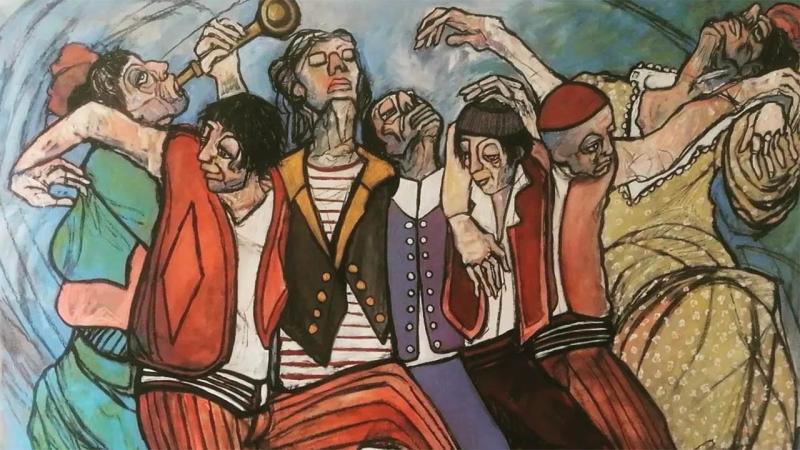I'm rediscovering Leonard Cohen: The Partisan, yes, but also "Who by Fire" which speaks to me quite a bit in these times of Zen exploration.
I'm impressed with the metric freedom.
Singing Leonard Cohen in the shower isn't as easy as expected: you end up with syllables too many, beats too few, stammering at the end of a sentence, fooled by the apparent simplicity of the performance.
That's the strength of his songs, I find: simplicity. No unnecessary adjectives, no obligatory rhyme, no imposed meter. We're surprised by a phrase that stops sooner than expected ("I took my gun and vanished"), by the unexpected repetition of a word ("Oh the wind, the wind is blowing. Through the grave the wind is blowing") or by the constant change of meter that creates a music within the music, as in "Who by Fire."
This freedom creates surprise. Surprise gives weight to every word.
I've always thought –without thinking too much about it, honestly– that songs were an extension of music. First you learn the guitar, then you figure out what to sing. Listening to Leonard, I understand that song can be an extension of literature or poetry: first you write a text, then you find the music to make it resonate.
When you write, it's impossible to force the reader to pause on a word or perceive the emotional color of a phrase –or else by adding more words that dilute the whole thing. Therefore, a song can be seen as a setting in space (and in time) of a text. Through rhythm and interpretation, each word is given the place and coloring that the author had imagined but that the page alone could not transcribe.
So soon Boulengerie, the album.






